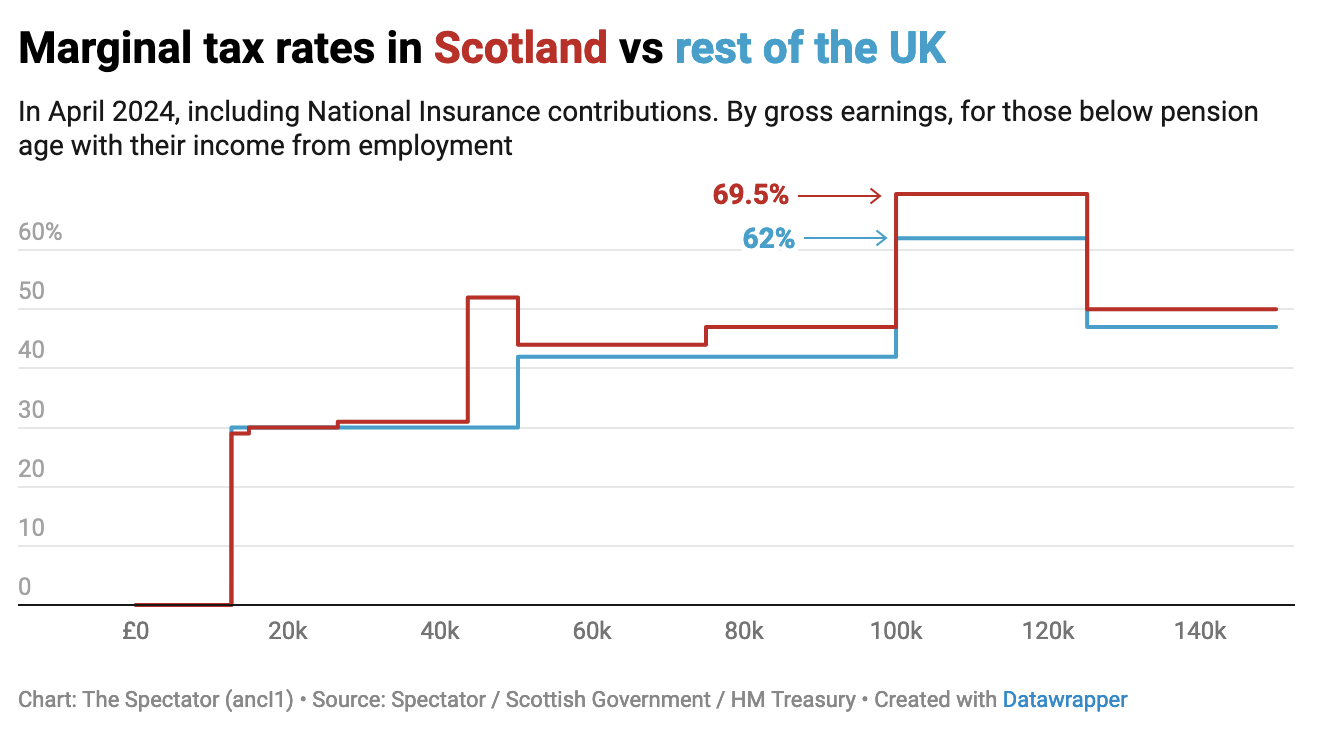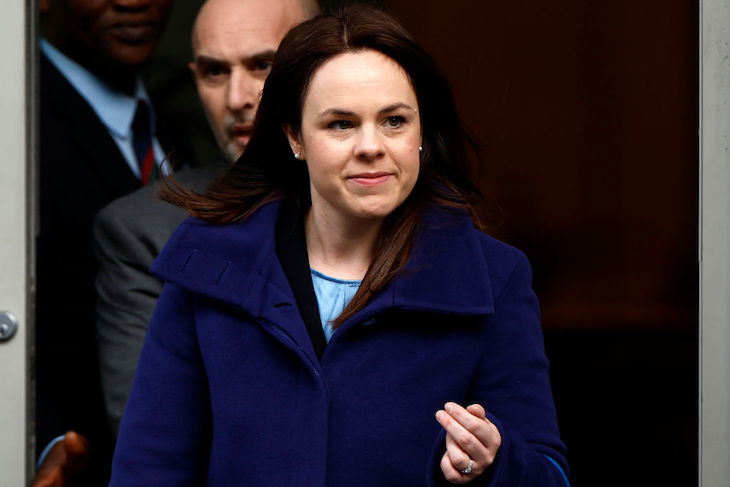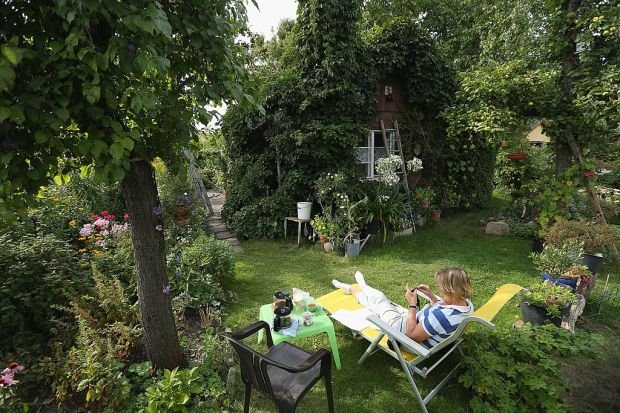I was on BBC1’s Question Time with Kate Forbes in Glasgow last week in which she was oddly loyal to the SNP government. She seems to have been the only member of Nicola Sturgeon’s government not to be deleting her WhatsApp during Covid and I suspect she’s appalled at the way Sturgeon & co placed secrecy at the heart of their Covid response. She said on Question Time that the way to grow Scotland’s economy was to attract people to come and work there. I put to her that having the highest tax rates in the UK (as Humza Yousaf has chosen to do) didn’t exactly scream “come to Scotland!”. She didn’t really respond.
But she has been more candid in an as-yet-unpublished column in West World, a community newsletter that serves Mallaig and its environs. The Mail on Sunday secured advance sight of her text and has made this its Scottish splash. She points out some basics.
Continually increasing taxes is ultimately counter-productive over the long term, even if you agree with it ideologically, because it ultimately reduces public revenue. The forecasts for what the Scottish Government will raise through its latest changes to the top tax bands is just over £80 million. That isn’t to be sniffed at. But the forecasts also suggest that they’ll lose £118 million that they could have raised because of behavioural change – people leaving or reducing their hours or treating their income differently. That illustrates that we need to invest in people, in job creation, and in better wages. That way the tax take will increase. I’m constantly going on about the tax base. What I am really talking about is people. Calling for a bigger population, through inward migration and retaining our people, is exactly the same thing as wanting to see the tax base increase.’

Even Scotland’s Fiscal Commission has admitted that introduction of the ‘advanced rate’ (45 per cent from £75,000) and raising the top rate 1pp to 48 per cent will be mostly undone by behavioural changes: high tax rates deter work, or persuade those on the edge to move to a lower-tax regime. The so-called “dynamic” effect. The newly-introduced top rate of 48 per cent alone is basically pointless: it’s estimated to raise just £8 million next year. The theoretical (“static”) effect would be to raise £53 million but behavioural changes are forecast to lose £45 million.
And those forecasts are likely to be underestimates. For example, when Halifax merged with Bank of Scotland there was debate over where its head office should be: they went for Edinburgh in the end. What would they do now, given that the tax rate for high salaries is markedly higher?
Forbes is right to say that tax rates at such levels are taken for political reasons: they are popular amongst those who would not be affected (ie, most Scots). Same with Starmer’s proposed tax on private schools and non-doms. But none of these taxes are expected to raise much in the way of actual money due to the side-effects. It’s especially hard for Scots as they are already losing high-skilled workers to England. This will be accelerated by a regime that seems to penalise success – Scotland’s effective tax rate now hits 84.5 per cent in some cases, as Ross Clark recently outlined.
But what Kate Forbes says about needing more people (and a bigger tax base) cuts to the heart of things and captures what I think will be the debate of the future. It dovetails with a point we make in the leading article of The Spectator this week. The number of taxpayers is entering permanent decline. Every country in Europe is now forecast to lose working-age population due to the low birth rate. The exception is England where high migration levels will increase the tax base. A big influx has its challenges but they are easier to fix than falling population and birth rate, a problem described as ‘existential’ by the Japanese and to which to country has a solution.
Like Forbes, I’m from the Highlands and its story for generations has been one of depopulation. This is reflected the art, the music and – thanks to Glasgow’s Herald newspaper last week – a series of articles on the problem. The debate up there is the exact opposite of the “Britain is full” argument that dominates much of England’s current debate. The population of Scots is predicted to peak in four years time and then enter terminal decline.
Soon, more countries will soon start to share the depopulation problem – and the conversation will turn to how best to compete for people. Cutting tax and letting people better build their lives through their work will be a tool that, I suspect, Scotland and the UK will have to use before too long.
Got something to add? Join the discussion and comment below.
Get 10 issues for just $10
Subscribe to The Spectator Australia today for the next 10 magazine issues, plus full online access, for just $10.




















Comments
Don't miss out
Join the conversation with other Spectator Australia readers. Subscribe to leave a comment.
SUBSCRIBEAlready a subscriber? Log in